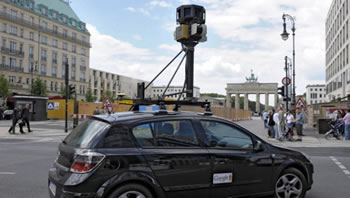The UK's Information Commissioner's Office (ICO), tasked with the enforcement of the Data Protection Act, has confirmed it's reviewing the recently published report by its American counterpart, the Federal Communications Commission (FCC) in order to decide whether further action needs to be taken, according to the Telegraph.
While Google viewed the FCC's published report as a victory, they were fined $25,000 for deliberately impeding the investigation surrounding the search company's collection of wireless network data. Ultimately, the FCC dropped the investigation after Google refused to provide details of those responsible, and the engineer involved invoked his Fifth Amendment rights, essentially leaving the case irresolvable. The engineer was later identified as Marius Milner, a 41 year old British wireless networking specialist based in California.
"We are currently studying the FCC report to consider what further action, if any, needs to be taken," a spokesperson for the ICO said in a statement. "Google provided our office with a formal undertaking in November 2010 about their future conduct, following their failure in relation to the collection of Wi-Fi data by their Street View cars."
At the time, the ICO concluded in agreement with Google's claims that the collection of wireless data, which included passwords and emails was a mistake. Google promised to put measures in place to reduce the possibility of it happening again. The ICO drew heavy criticism from privacy campaigners at the time, most of which complained the decision was too lenient given the scale of data collected by the Google Street View cars.
The agreement included a provision for the ICO to audit Google's privacy practices. "The audit was published in August 2010 and we will be following up on it later this year, to ensure our recommendations have been put in place."
Speaking with the Telegraph, a spokesperson for Google said the firm wanted to "put the matter behind us," adding, "while we disagree with some of the statements made in the document, we agree with the FCC's conclusion that we did not break the law."
